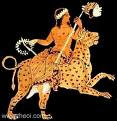I found this here There were a number of well-documented mishaps though history that befell actors and technicians that were performing the play Macbeth. Some of them include...
"During the first performance of Macbeth, William Shakespeare himself was forced to play Lady Macbeth when the boy designated to play her suddenly became overcome with sickness and died. King James was so displeased with the play that it was banned for five years. In Amsterdam in 1672, the actor playing Macbeth substituted the blunt stage dagger with a real one, and with killed his co-actor playing Duncan right in front of the live audience. There was even an incident in 1721 where the army had to be called in. Some hecklers were annoying some of the actors on the stage. The actors responded by attacking the hecklers with their swords. During its 1849 performance at New York's Astor Place, 31 people were trampled to death in a riot that had broken out. In 1934, British actor Malcolm Keen turned mute on stage, and his replacement developed a high fever and had to be hospitalized. In 1937, a 25 pound stage weight crashed within an inch of him Laurence Olivier (who was playing Macbeth). Not only that, but his sword broke on stage flew into the audience, hitting a man who later suffered a heart attack. And if you think that was enough bad luck for one production, think again. Both the director and the actress playing Lady Macduff were involved in a car accident on the way to the theater, and the proprietor of the theater died of a heart attack during the dress rehearsal. In the 1942, three actors in another production of Macbeth died, and the costume and set designer committed suicide. Diana Wynyard sleepwalked off the rostrum in 1948 and feel down 15 feet. In Bermuda, 1953, Charlton Heston suffered severe burns in his groin and leg from tights that were accidentally soaked in kerosene. Rip Torn's seemed to be unable to get away from the curse no matter how many times he tried. An actor's strike struck his 1970 production in New York City, two fires and seven robberies plagued the 1971 version, and finally J. Kenneth Campbell, who played Macduff, was mugged soon after the play's opening in the 1981 production. And finally, it was Macbeth that Abraham Lincoln chose to take with him on board the River Queen on the Potomac River one afternoon. The president was reading to a group of friends passages of the play that happened to follow the scene in which Duncan was assassinated. Within a week, President Lincoln himself was assassinated."
There are also those who believe that hearing talk about MacBeth backstage meant the show would be cancelled and replaced with it, because it was supposedly such a moneymaker. (Personally, I believe that this rumor came from Elizabethan press agents trying to drum up attendence.)
Would love to see if there are other sources, ideas, for this superstition.
On a lighter note, here is a clip from the 1981 Antony and Cleopatra for you to enjoy. It features Jean Lapotaire as a rather western Cleopatra but she is captivating all the same. I'd seen her as a scrappy, rather vulgar Piaf in a video of that play and have always enjoyed her work. Although this is not the scene we are working on, a lot can be learned from watching the way she listens during the scene. She is alive in her silence, an important skill to have.

